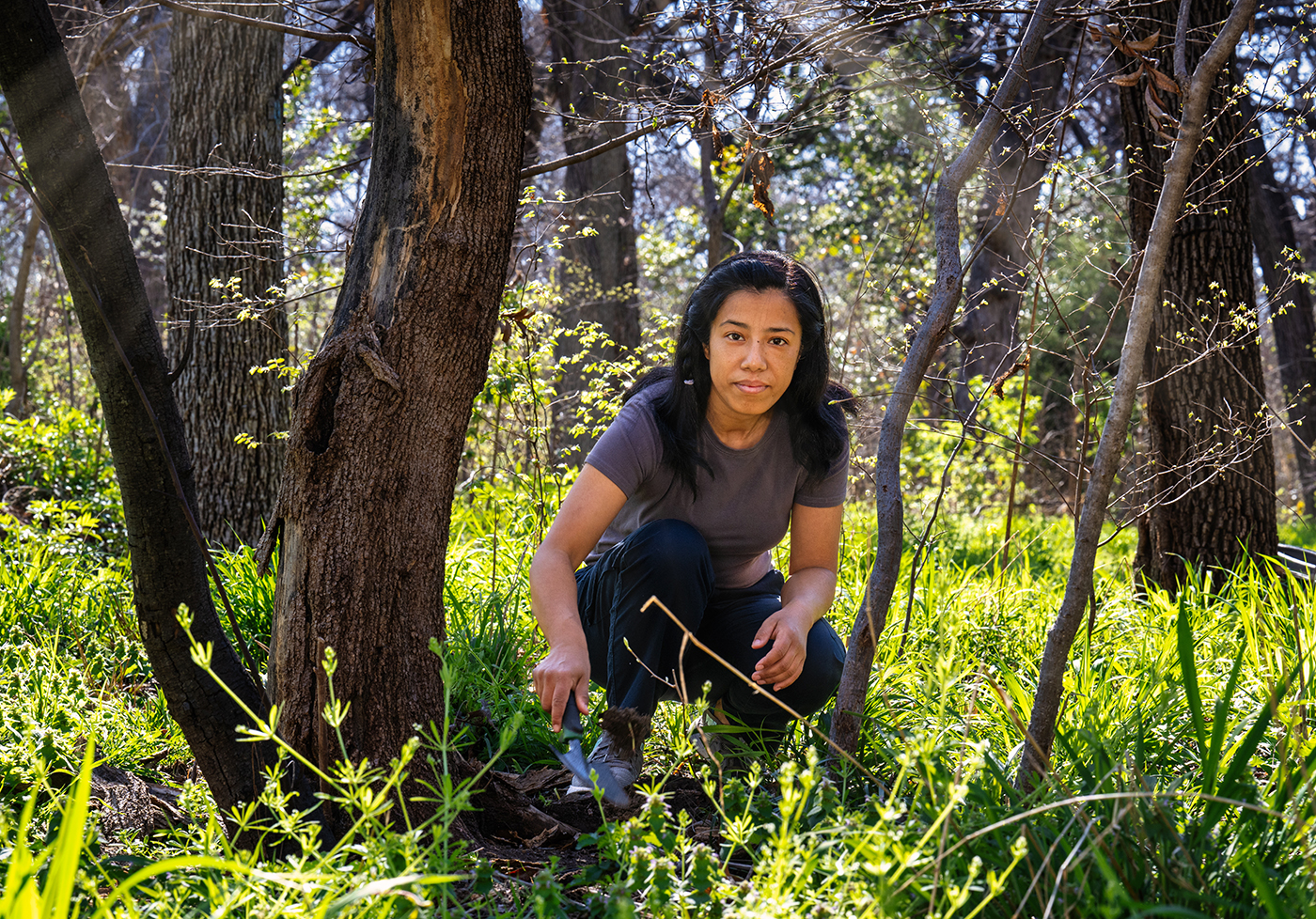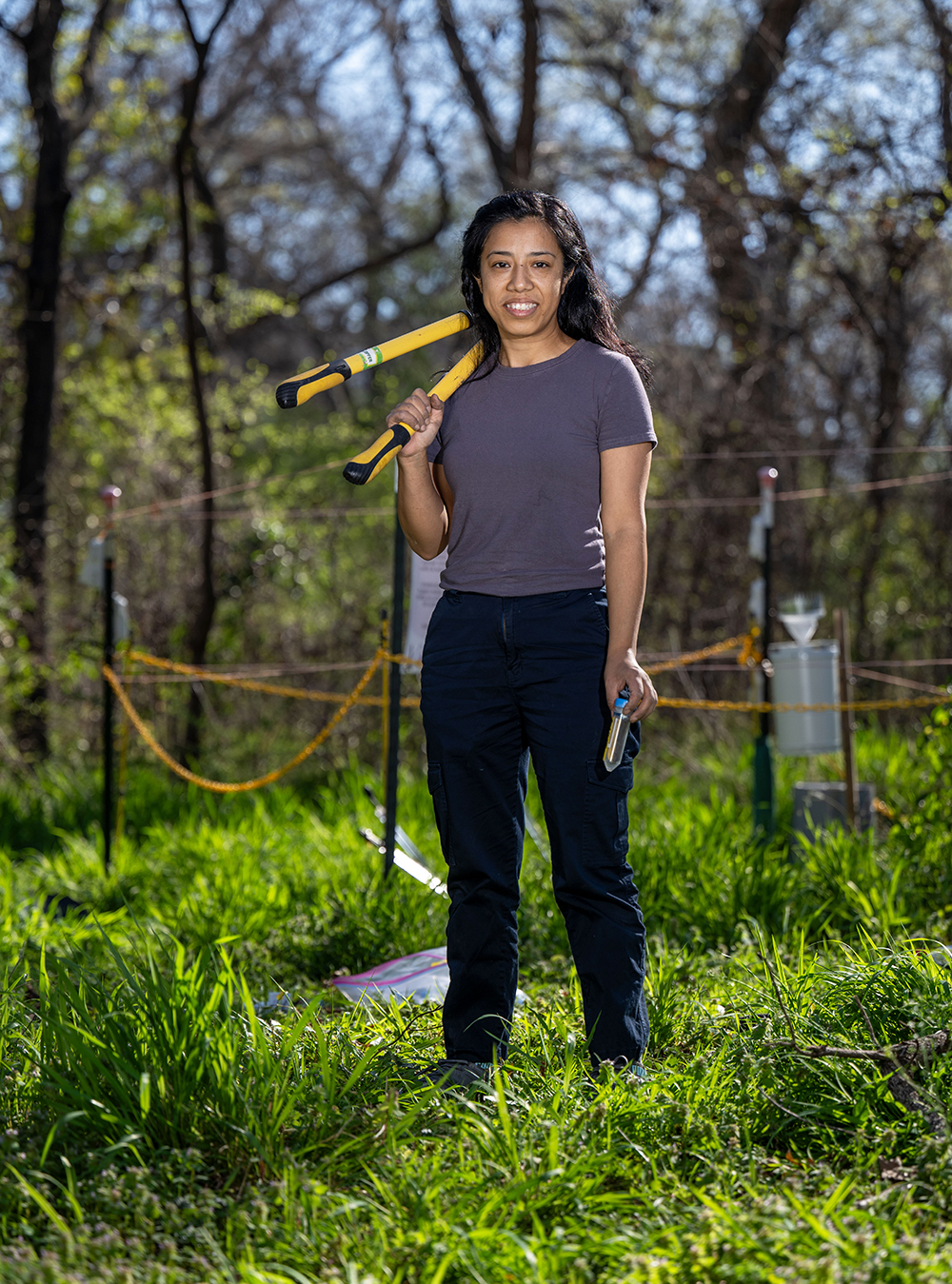Life Sciences Building, Room 206
501 S. Nedderman Drive
Box 19047
Arlington, TX 76019
EES grad student earns prestigious Sklodowska-Curie Fellowship

A graduate student at The University of Texas at Arlington has been awarded a prestigious fellowship to help fund her research in isotope hydrology.
Suprina Shrestha, a master’s student in Earth and environmental sciences, received a Marie Sklodowska-Curie Fellowship (MSCF) from the International Atomic Energy Agency (IAEA). The fellowships are awarded to women involved in master’s studies and are designed to encourage women to study nuclear-related subjects.
Shrestha came to UTA to study tracer hydrology, which is the use of natural and artificial tracers to examine hydrological processes. Her faculty supervisor is Ricardo Sanchez-Murillo, associate professor of Earth and environmental sciences.
“Winning the fellowship evoked a range of emotions in me; I was excited, motivated, and relieved,” Shrestha said. “Above all, I was filled with deep gratitude towards the IAEA MSCFP for granting me this prestigious fellowship and towards my mentor and supervisor, Dr. Sanchez, whose encouragement and inspiration drove me to pursue this opportunity.”
Shrestha’s current isotope hydrology project involves evaluating how urban endemic plants across north-central Texas uptake water by using water isotopologues, through fieldwork, isotope analytical experiments, data management and modeling, and interpretation of results. An isotopologue is a molecule in which one of the atoms is replaced by its isotope—the atom of an element that has the same number of protons and electrons, but a different number of neutrons.
“My research centers around investigating whether there are disparities in isotopic composition among different plant tissues, such as roots and stems, despite their access to the same water source,” she said. “If such inconsistencies exist, I aim to uncover the factors contributing to them. Furthermore, I'm delving deeper to explore if there is a potential variability within the root or stem systems themselves.”
Shrestha said the fellowship will greatly influence her career development in the field of isotope hydrology.
“As a foreign student and mother of a young child from Nepal, this fellowship serves as a crucial financial support system, covering various expenses such as tuition fees, research costs, stipends, and other essential expenditures,” she said. “With these financial burdens alleviated, I can dedicate myself wholeheartedly to my studies and research endeavors.”
The fellowship also provides opportunities for internships, intensive networking, and attending conferences. In early March she will attend a workshop at IAEA headquarters in Vienna, Austria, in honor of International Women's Day.

“I have been impressed by Suprina’s commitment to conducting high-quality research,” Sanchez-Murillo said. “This fellowship is highly competitive and prestigious. IAEA's primary mission is the use of nuclear techniques for peaceful purposes. This includes nuclear energy, food, health, and environmental studies. Our group uses a nuclear technique, laser spectroscopy, to underpin tiny differences in the water molecules. These differences are used to understand hydrological processes from cyclone formation to plant water use. In this regard, Suprina's work has focused on understanding how plants use water in urban environments, particularly looking at water isotope differences in roots.”
Sanchez-Murillo’s lab group has a plot site at the Fort Worth Botanic Garden in collaboration with the Botanical Research Institute of Texas, where Shrestha and another master’s student, Erica Almance, are conducting research.
Shrestha was born and raised in Kathmandu, the capital of Nepal, which is located in a valley surrounded by the Himalayas. She grew up with a love for nature and outdoor adventures, she said.
“Nepal’s incredibly diverse ecosystems and abundant natural resources coexist with the harsh realities of climate change, including glacial melting, water scarcity, and natural disasters like landslides and floods,” she said. “Witnessing these impacts firsthand has fueled my determination to study environmental science.”
She received a bachelor’s degree in environmental science from Tri-Chandra Multiple Campus, a part of Tribhuvan University in Nepal, in 2006. She worked in the environment and water sector for several years and said she was increasingly drawn to learn more about a broader domain of isotopic hydrology as well as to understand its application in water resource management, contamination assessment, and climate change impacts.
Shrestha went to graduate school in Nepal and earned an M.S. in environmental science, but noted that environmental studies in Nepal are more theoretical in nature. In order to contribute more to the field of tracer hydrology, she came to UTA and began master’s studies in fall 2022. After earning her M.S. degree, Shrestha said she is considering two paths.
“One option is to pursue a Ph.D. in isotope hydrology, delving deeper into research and academia to expand my expertise in this field,” she said. “Alternatively, I am also interested in pursuing a career where I can directly apply my knowledge and skills to address pressing environmental challenges, such as water resource management, climate change mitigation, and ecosystem conservation.
“Regardless of the path I choose, my ultimate goal is to utilize my knowledge in isotope hydrology to contribute meaningfully to environmental research and management initiatives.”
--
The UTA College of Science, a Carnegie R1 research institution, is preparing the next generation of leaders in science through innovative education and hands-on research and offers programs in Biology, Chemistry & Biochemistry, Data Science, Earth & Environmental Sciences, Health Professions, Mathematics, Physics and Psychology. To support educational and research efforts visit the giving page, or if you're a prospective student interested in beginning your #MaverickScience journey visit our future students page.